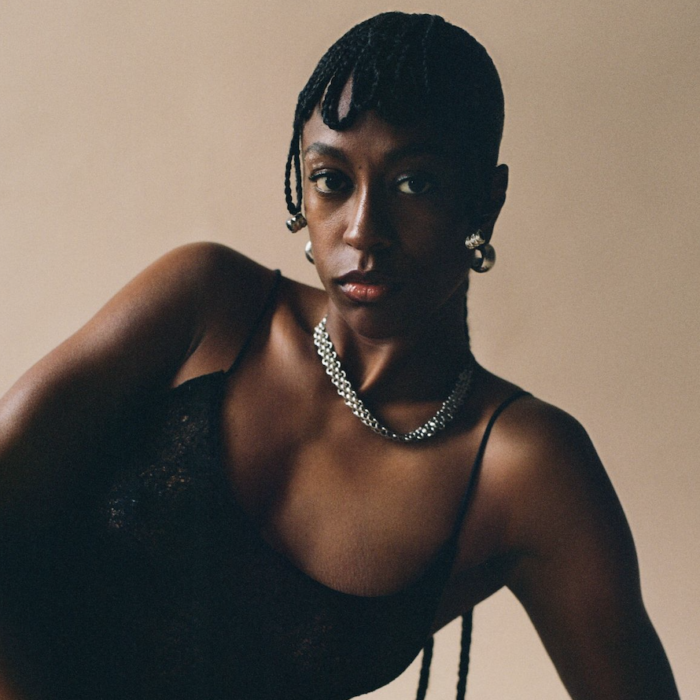

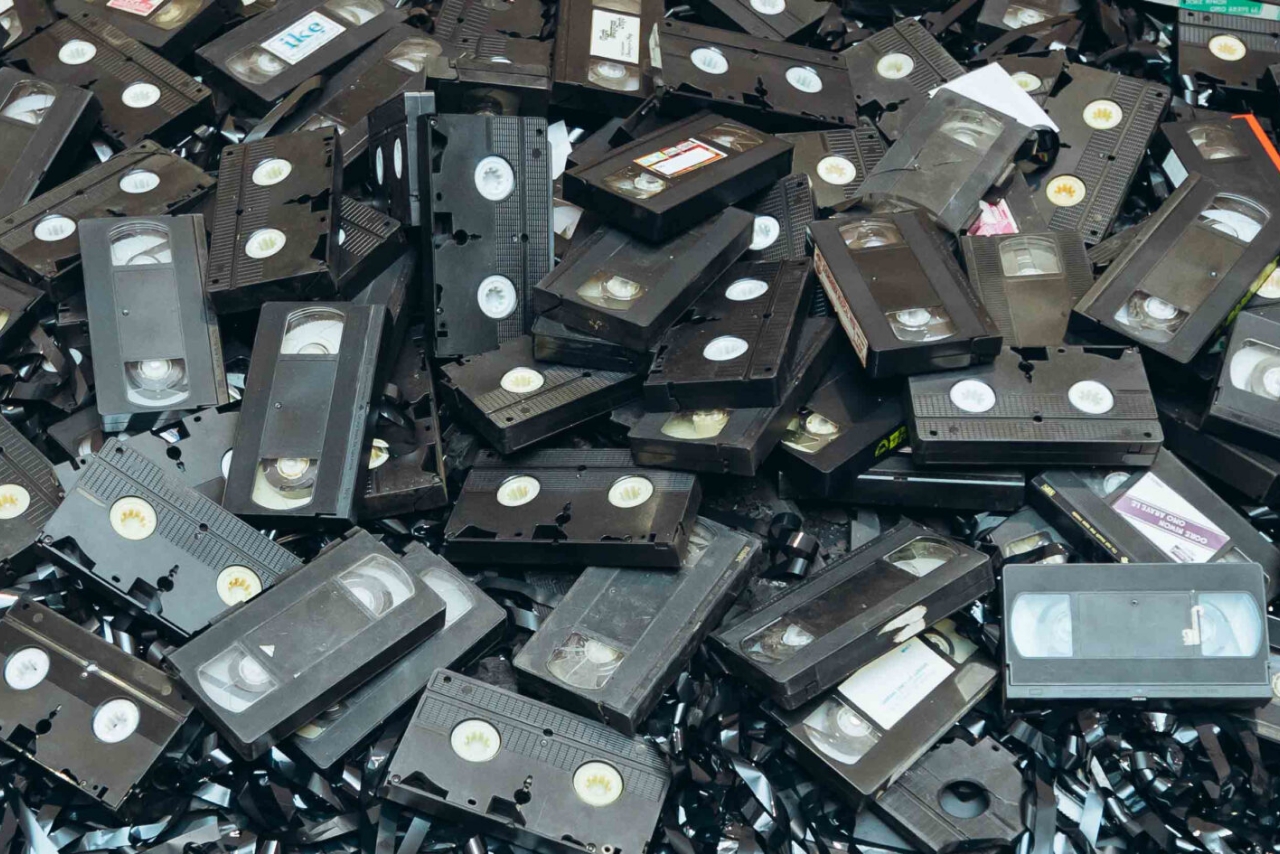
I DIDN’T GROW UP WATCHING TV because my parents didn’t own one. As a child, I often wondered why, especially when I could hear the voices and music from my neighbors’ televisions and saw all my friends had one except us. Initially, I thought it was because we were poor. But then I attended a school where the fees far exceeded the price of a TV, and the ‘we’re poor’ narrative didn’t hold up. Eventually, I discovered the truth. It wasn’t a matter of money—which would have been an understandable explanation. Instead, it was our church, the Deeper Life Bible Church, that had dictated this void. They declared an outright ban on television, branding it the Devil’s Box. Our household adhered to this decree, making us outliers in a world where moving pictures had become the norm.
At school, my friends would chat excitedly about cartoons, kids’ programs, and soap operas I had never seen. In my household, the only source of entertainment was a radio, which played a steady stream of Jim Reeves and Pastor Kumuyi’s sermons. My dad loved Jim Reeves, and consequently, my musical taste was shaped by those nostalgic country melodies.
To keep up with popular culture and join the cool conversations at school, I had two options: sneaking into our neighbor’s apartment or waiting for visits to my grandmother, Mama Shed’s house—she was Baptist and didn’t follow the no-TV rule. It was at her house that I watched my first Nigerian film. Mama Shed’s house was a treasure trove of “home videos” as VHS cassettes were called at the time. From Diamond Ring to Owo Blow, Taxi Driver to Madam Dearest, Blackberry Babes to Domitila, all genres of Nigerian titles were stored in various corners of her house.
Back in the day, most films featured memorable soundtracks that became household anthems long after the movies ended. Regardless of the quality, you remembered the song, and to recall the plot, you sang the song. Music and movies were inseparable, with musicians even making appearances in some popular films.
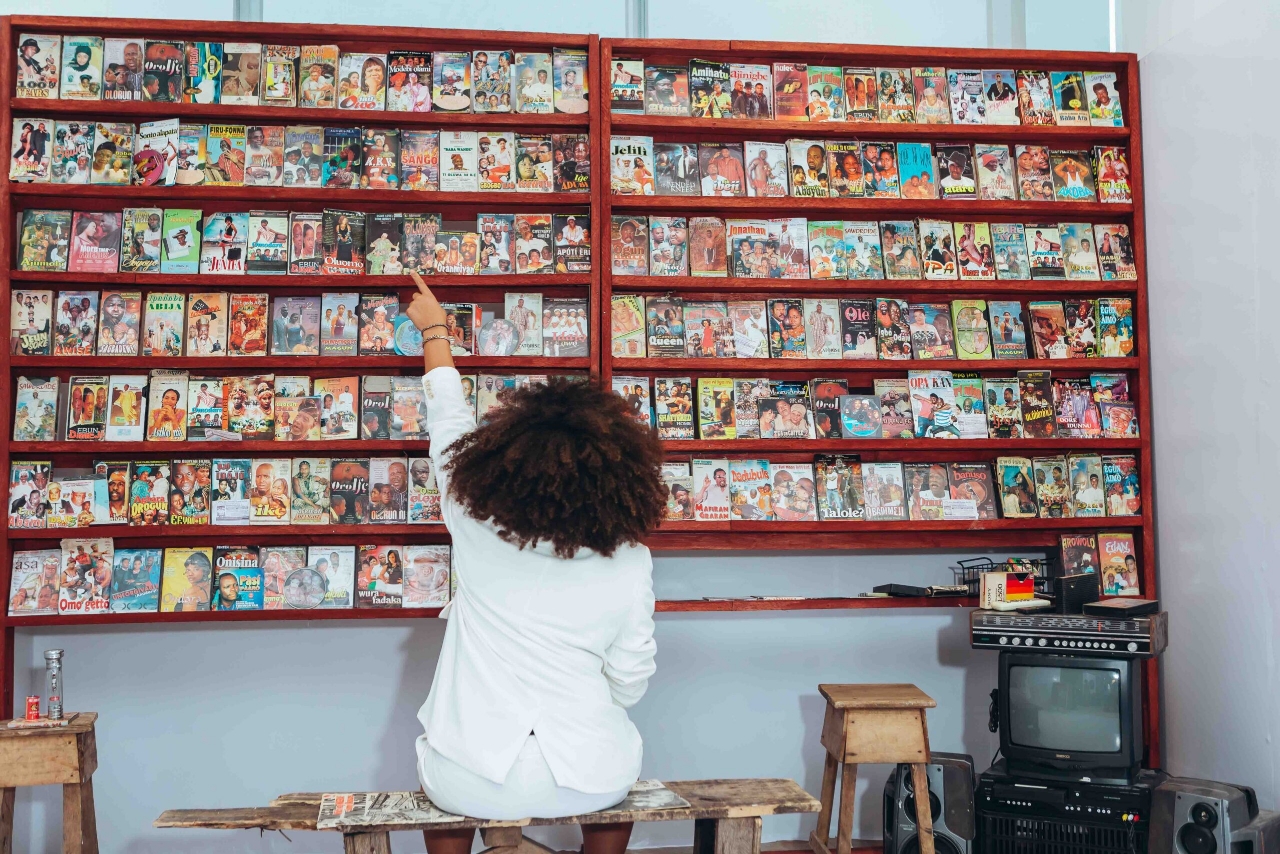
Years later, now the proud owner of the Devil’s Box and working as a talent executive in Nigeria’s film industry, I witnessed firsthand the evolution of consumption technology—from VHS to VCD and DVD, then to cable TV and streaming platforms. Mama Shed, now close to 90, struggles to keep up, and all the videotapes she once had in her possession are nowhere to be found. Years of film history, gone.
My grandmother’s story is not unique. Many senior citizens who have lived through different eras of film in Nigeria have either destroyed their collections or are on the verge of doing so. Not because they don’t want to preserve them, but because they don’t know how.
Nollywood currently ranks as the world’s second-largest film industry by output, significantly influencing the perspectives, beliefs, and cultural values of millions of Nigerians and Africans. Yet, its century-long evolution remains largely undocumented. There’s no single place today where you can delve into the tangible proof of film’s longevity and impact in Nigeria. Filmmakers lack reference points, stakeholders lack historical context, academics lack research materials, and enthusiasts lack avenues for exploration.
When Thomas Edison invented the Kinetoscope peep-box viewer in the 1890s, one of the public parlors set up worldwide to demonstrate its use was in the Lagos colony. It enabled one person at a time to view moving pictures. That’s well over 100 years ago. When I learned this, I was curious to know how widespread this knowledge is. So, I asked a few of my friends, notable filmmakers and actors in Nollywood, how old they think film in Nigeria is. Nobody’s response was close.
The first public screening of a film in Nigeria was hosted at the Glover Memorial Hall on present-day Custom Street, Marina Lagos, in August 1930s. Sir Herbert Macaulay, a leading nationalist, invited the Balboa Film Company of Spain. This company was touring the West African coast with silent films. The screening took place over 11 days at the Glover Memorial Hall on Lagos Island.
Later in the 1900s, Geoffrey Barkas’ 1926 feature, Palaver, became the first feature film made in Nigeria, albeit controversial. In 1954, mobile cinema vans were introduced, creating 44 free screening centers spread across the country. These centers showcased films created by the Nigerian Film Unit, which were initially in black and white. The first film shot in color was Fincho in 1957, marking another milestone as the first motion picture to be copyrighted under the Nigerian Film Unit.
After Nigeria gained independence from British rule in 1960, the golden era of cinema emerged, led by visionary filmmakers like Hubert Ogunde, Isola Ogunsola, Ola Balogun, Ladi Ladebo, Adeyemi Afolayan, Eddie Ugbomah, Segun Olusola, Moses Olaiya, and a few others. These pioneering filmmakers shot the first fully commercial Nigerian films on celluloid in the 1960s.
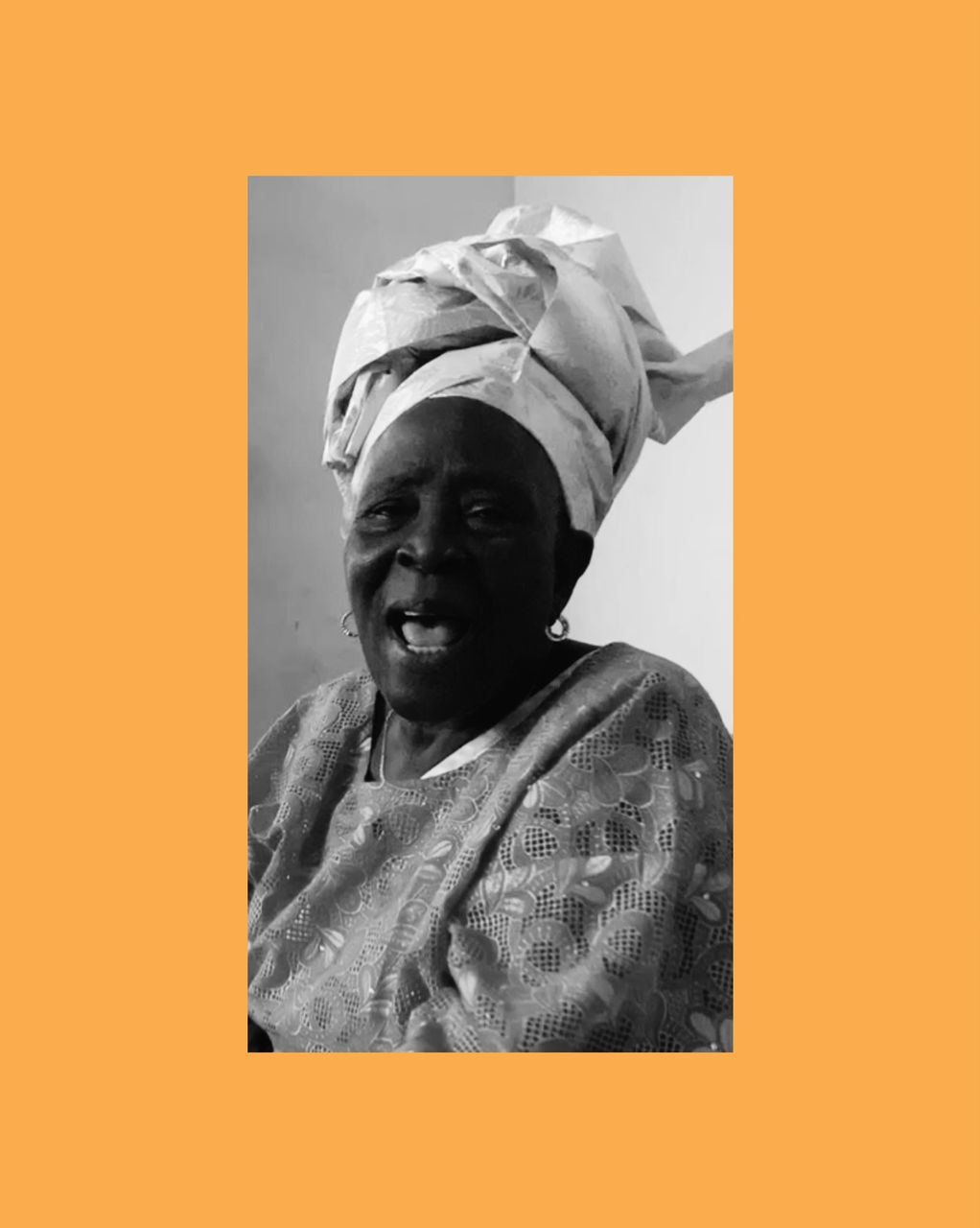
This was followed by the home video boom, spearheaded by Ade Aji-boye’s Soso Meji in 1988 and Kenneth Nnebue’s groundbreaking Igbo film, Living in Bondage, in 1992. This era revolutionized the way films were made and distributed in Nigeria.
The early 2000s saw the emergence of the new Nigerian cinema, which birthed the name Nollywood, as coined by Japanese-Canadian journalist Norimitsu Onishi in his New York Times article. This marked the beginning of a new chapter in Nigeria’s rich cinematic history.
I’ll pause the history lesson here. In 2023, a burning question kept me up at night: What can I do to remind the world of Nollywood’s glory days? This question led to an exhibition titled Losing Daylight. It’s a curation of what is historically important, what has been forgotten or unseen, and what is exceptional, beautiful, or at issue. The exhibition features imagery, film scripts, posters, costumes, equipment, props, publications, personal effects, and more from the first film made and seen in this country to the present day.
It’s a miracle that an industry lacking much of its historical context is still thriving. While Losing Daylight is a step forward, a hundred years of lost history cannot be restored by one person’s efforts alone. Without a collective, urgent effort, the current boom may be short-lived. The future of Nollywood depends on preserving its past and educating the next generation on its rich legacy.
“We just be doing shit,” he says. “Sometimes I do a couple songs, sometimes I only do one song. Sometimes I do five songs. I work every day though, so I make a boundless amount.” Hopefully, the new artists around him are taking notes.
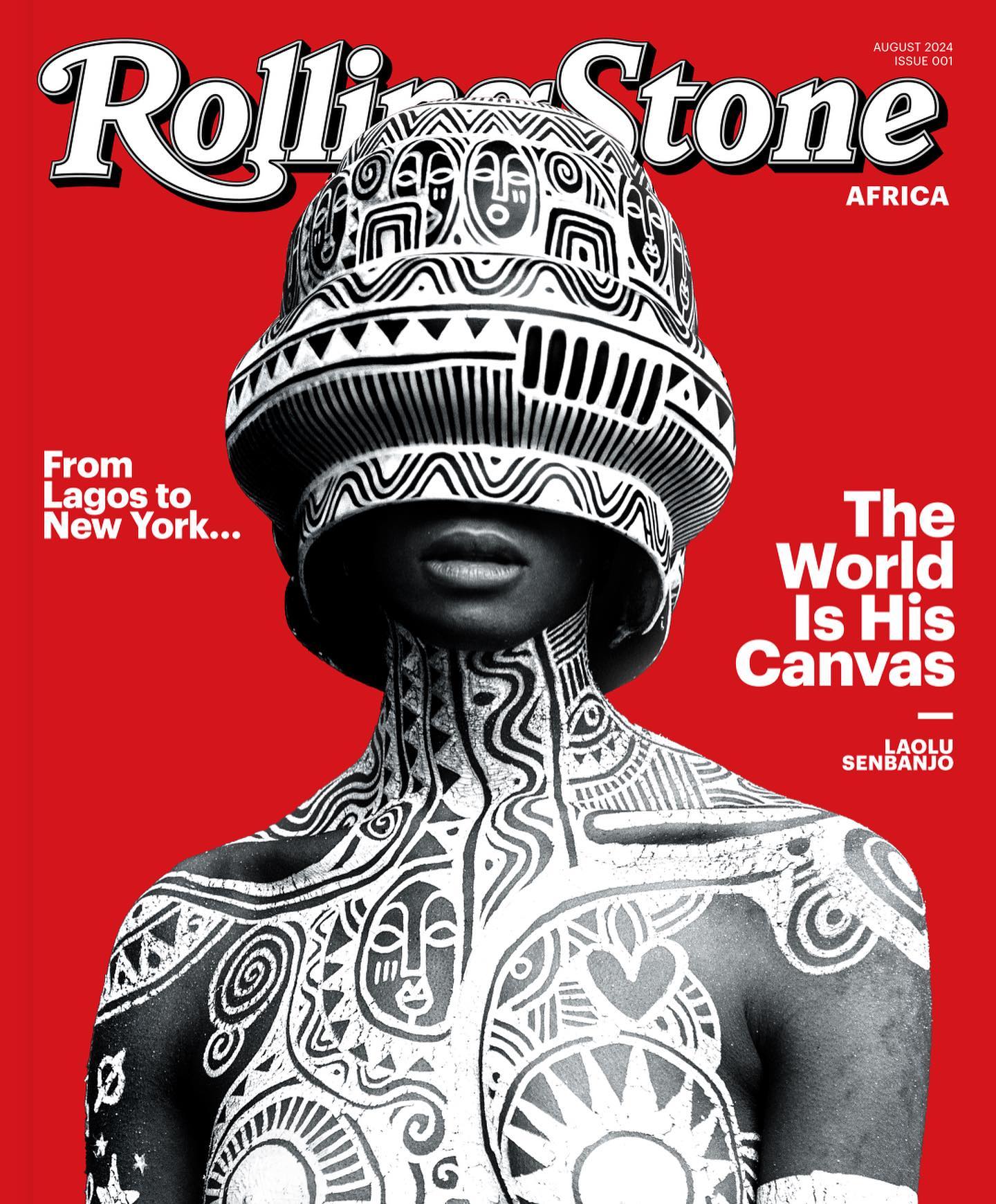
© Copyright Rolling Stone Africa 2024. Rolling Stone Africa is published by Mwankom Group Ltd under license from Rolling Stone, LLC, a subsidiary of Penske Media Corporation.
By providing your information, you agree to our Terms of Use and our Privacy Policy. We use vendors that may also process your information to help provide our services.
By registering for our sites and services, you agree to our Terms of Service (including, as applicable, the mandatory arbitration and class action waiver provisions) and our Privacy Policy.
We use vendors that may also process your information to help provide our services.
This site is protected by reCAPTCHA and the Google Privacy Policy and Terms of Service apply.
By providing your information, you agree to our Terms of Use and our Privacy Policy. We use vendors that may also process your information to help provide our services.